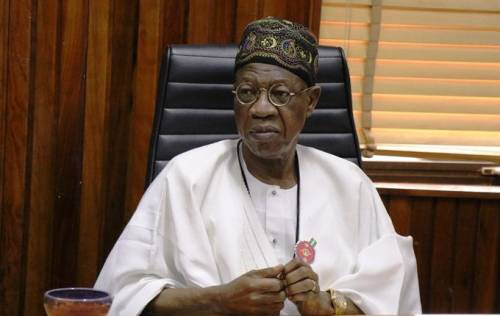An anti-corruption coalition, Civil Society Network Against Corruption (CSNAC) has the Minister of Information and Culture, Alhaji Lai Mohammed to release details of expenditure on payment to key Digital Switchover (DSO) stakeholders.
The Federal Government had paid a whopping N9.4 billion to the stakeholders.
In a letter addressed to the Minister last week, the anti-graft coalition asked the Minister to tell the public how the N9.4 billion released to the stakeholders was spent.
The letter with the caption “Request for information on the N9.4 billion approved by the Federal Executive Council (FEC) Pursuant to the Freedom of Information Act (FOI ACT 2011),” was sent to the Minister last Monday.
In March 2021, during the unveiling of a 13–member Ministerial Task Force on Digital Switchover (DSO), Mohammed announced that the Federal Executive Council (FEC) approved the sum of N9.4 billion as outstanding payment to key DSO stakeholders.
CSNAC, in the letter signed by its Chairman, Mr Olanrewaju Suraju said the Minister is under obligation to make public how the funds were expended.
The request by CSNAC was hinged on the legal framework of the Freedom of Information (FOI) Act 2021 which mandates public access to vital information.
CSNAC has 140 affiliate members spread across Nigeria, representing the country’s most formidable anti-corruption network and by far one of the most influential in Africa.
“Nigerians have the right to know how the funds were spent. We are making the request in the overall public interest and in line with transparency and accountability in public administration,” Suraju said in the letter addressed to the Minister.
There is controversy surrounding the expenditure with allegations that N2.5 billion out of the amount was given as a seed grant to a private company, leading to the suspension and arraignment of a former Director-General of the National Broadcasting Commission (NBC).
The coalition said it was making the request in line with Sections 2, 3 and 4 of the FOI Act, 2011.
“We have given you seven days to respond to the request. This is necessary for the information ministry to avoid necessary charges in the court of law,” Suraju added.
















